How to Use Imageboard Websites & Translate Images with Ease
Known for minimalist design and image-centric posts, imageboard websites have become hubs for niche discussions, particularly among anime fans, creatives, and those interested in internet subcultures, standing out as unique spaces where creativity, culture, and conversation converge. In this post, we’ll explore the 6 best image board sites you should know in 2025, offering a glimpse into their unique features and the communities they boast.
Part 1: What Is an Imageboard Website?
An imageboard website is a type of online forum that revolves around posting and discussing images, rather than just text. Unlike traditional forums that often rely heavily on written posts and threads, image boards sites allow users to upload images along with their comments. These sites typically feature a simple, minimalistic layout and offer an anonymous posting experience, where users don’t need to register an account to participate.
Chan image boards are often organized into boards or categories that focus on specific topics, ranging from anime and gaming to niche interests like art, technology, or memes. The nature of these sites fosters a free-flowing, creative exchange of ideas and content, which has made them a favorite for subcultures, especially among anime fans and digital artists. While some imageboards have gained notoriety for hosting controversial or underground content, others have become beloved spaces for creativity and collaboration.
Part 2: Top 6 Free & Best Imageboard Websites You Should Know
With countless imageboard websites available online, each catering to different interests and communities, it can be overwhelming to know where to start. To help you navigate this vast landscape, we’ve rounded up six of the most popular and free image board sites in 2025. Whether you’re a long-time user or a newcomer, these platforms offer unique features and thriving communities that make them stand out in the world of imageboards.
2.1 4chan
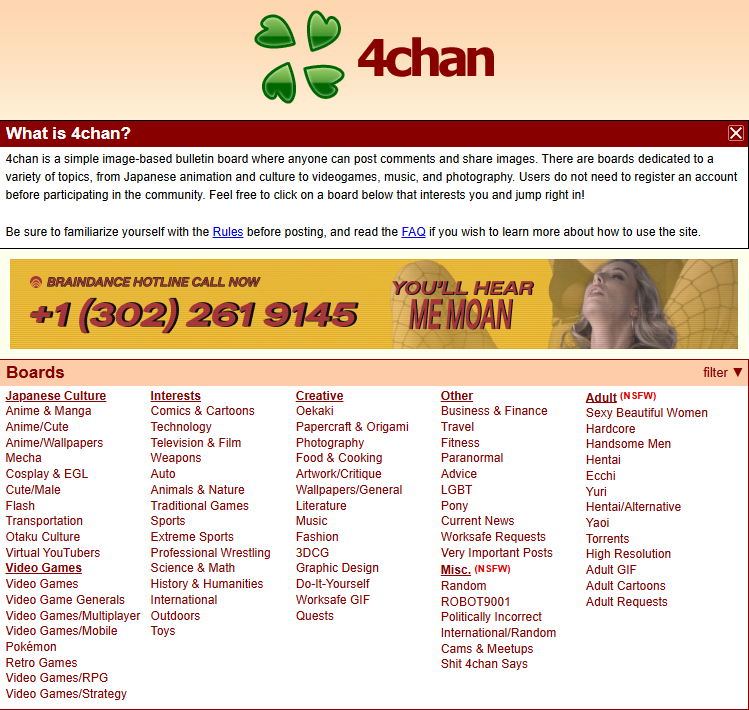
Well known for controversy, 4chan, an anonymous English-languge imageboard website, is a pioneer in the image board space. It offers a wide range of boards for various interests, from anime and video games to politics and technology. 4chan’s anonymous posting and fast-paced culture have earned it a reputation as both a hub of creativity and a breeding ground for chaos.
Limitations: While 4chan’s lack of registration encourages free speech, it has also led to a toxic environment, with harassment, trolling, and the spread of harmful content often dominating the platform.
2.2 Anychan
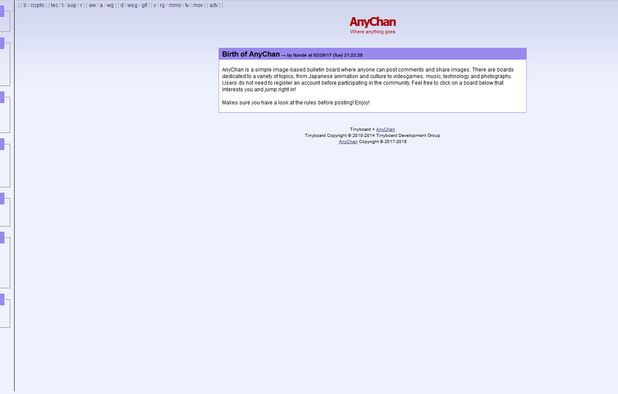
Anychan is a smaller but free image board site that focuses on a variety of topics, including anime, gaming, and technology. It promotes a more relaxed atmosphere compared to its larger counterparts, offering a space for thoughtful discussions and creative posts.
Limitations: As a niche imageboard, Anychan suffers from a limited user base, which can result in slower posting speeds and fewer discussions on certain topics.
2.3 8chan
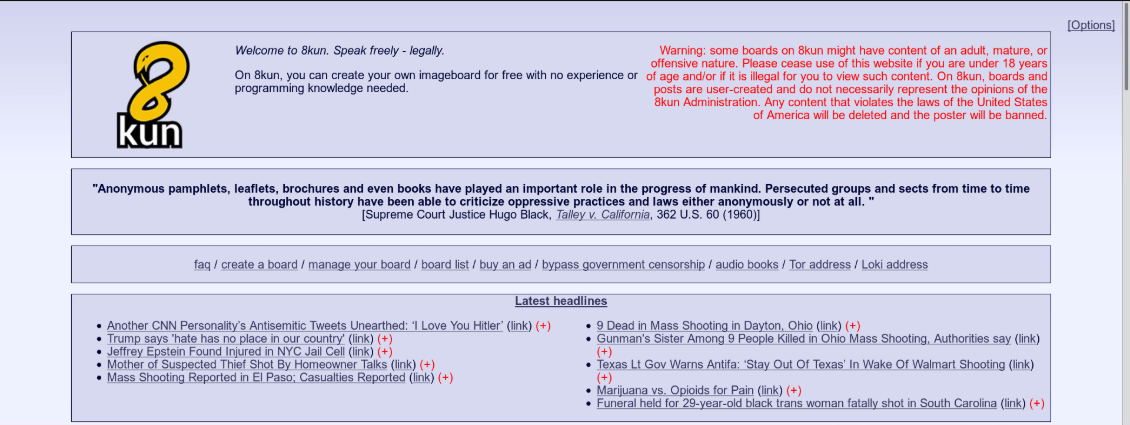
Another widely debated chan site, 8chan (now known as 8kun) is famous for its minimal moderation policies, allowing almost any content to be posted. Serving as one of the 4chan alternative sites, it has attracted users looking for freedom of expression, especially in more fringe communities.
Limitations: The lack of moderation has led to significant issues with illegal content, harassment, and extremist communities, causing the site to face frequent shutdowns and legal challenges.
2.4 Lainchan
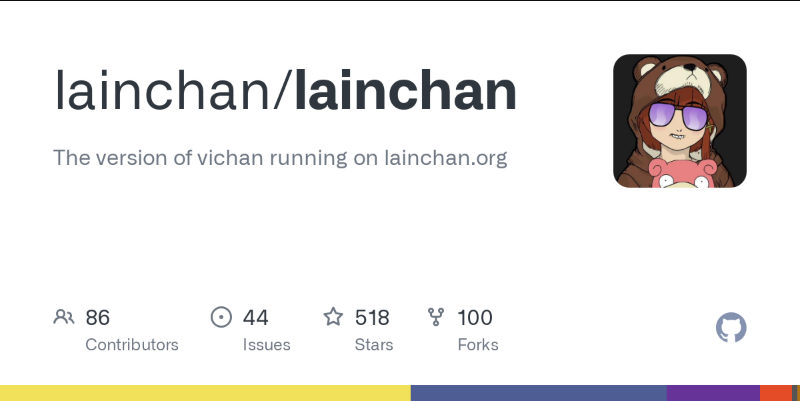
Lainchan is a smaller, more niche imageboard website dedicated to topics related to cyberpunk, technology, and philosophy. It draws inspiration from the anime Serial Experiments Lain, offering a space for deep, introspective discussions on the digital world.
Limitations: Lainchan’s specific focus can make it less appealing to those looking for a broader range of topics, limiting its user base and activity levels.
2.5 Wizardchan
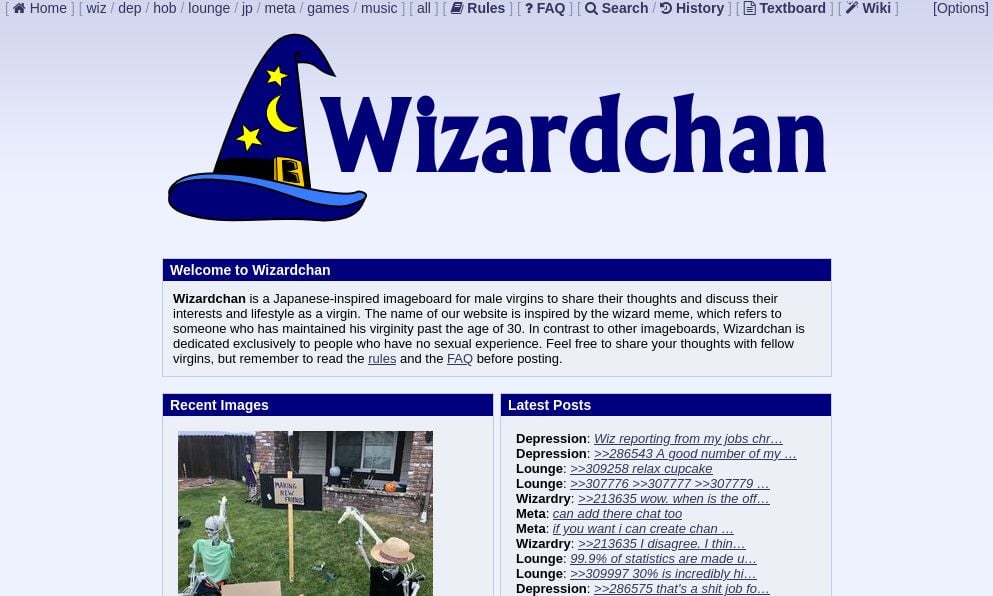
Wizardchan, an anonymous image board, caters specifically to male "loners" or "wizards" — individuals who choose to live without romantic relationships. This chan site is known for offering support to those who feel socially isolated or disenfranchised.
Limitations: The platform’s narrow focus on loneliness and anti-social topics can sometimes lead to negative, self-destructive discussions, creating a challenging environment for new users.
2.6 Allchans

Allchans is a collection of multiple imageboard communities, gathering a variety of smaller, independent 4chan alternative sites. It’s a more open space that supports a wide range of interests, allowing users to easily explore different topics without being tied to a single niche.
Limitations: The broadness of Allchans can lead to a scattered user base, resulting in fragmented discussions and a lack of cohesion across its boards. This can sometimes make it harder to find active communities within the larger network.
Part 3: What Was the First Imageboard?
The origins of imageboard websites can be traced back to 2chan (also known as Futaba Channel), which was launched in 2001 in Japan. Created by a programmer named Hiroyuki Nishimura, 2chan was designed as a simple, image-centric forum where users could post images along with text in an anonymous environment. This innovation rapidly gained popularity, particularly within online subcultures in Japan, and laid the foundation for the rise of imageboard websites around the world.
2chan’s influence was immense, inspiring the creation of numerous other imageboards, including the famous 4chan in the United States. While 2chan itself remains a cornerstone of Japanese internet culture, its legacy is visible across a wide variety of imageboards that have grown into key platforms for online expression, creativity, and niche communities.
Bonus Tips: How to Translate Images to English on Imageboard Websites
Navigating free image board sites can be a fun but sometimes challenging experience, especially when many posts are in different languages. If you’re a non-Japanese user exploring anime-focused imageboards or engaging with international communities, understanding foreign text in images can open up a whole new layer of engagement. One excellent tool for translating text in images is PDNob Image Translator, which allows you to quickly and accurately translate text from images into English.
Whether you’re trying to decode a foreign meme, reading fan art captions, or just exploring new boards, PDNob makes it easier to interact with content across language barriers. With its simple interface and fast translation capabilities, it’s a must-have tool for any imageboard enthusiast.
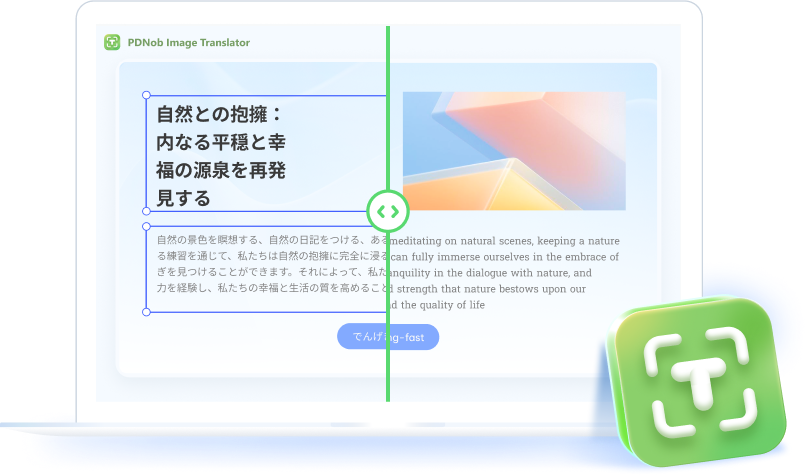
How to Use PDNob Image Translator to Translate Imageboard Pictures
- Download and install the software on your computer. Then launch it. On the interface, screenshot, upload or pasting images from imageboard websites.
- Text embedded in the uploaded image will be recognized and then extracted, displaying on the right panel, and you can choose to translate the image to a specific language, without losing format.
- Additionally, you can edit the translated image by switching to the translate image.
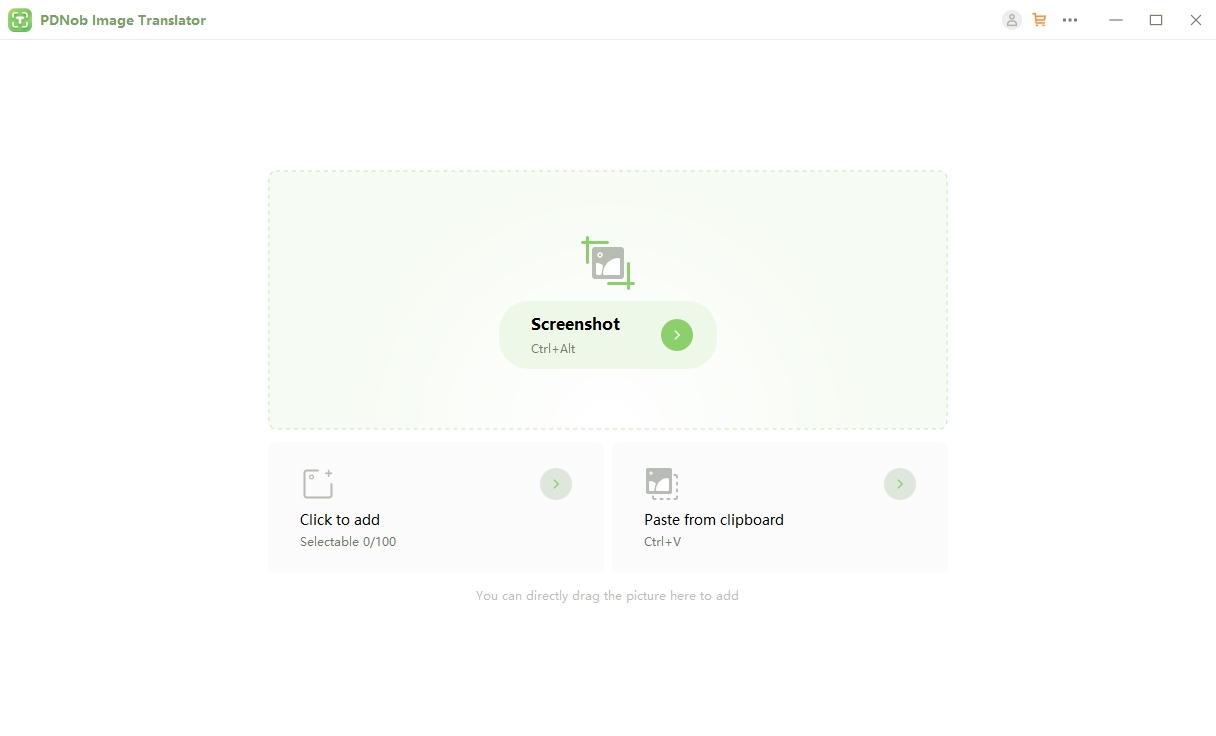
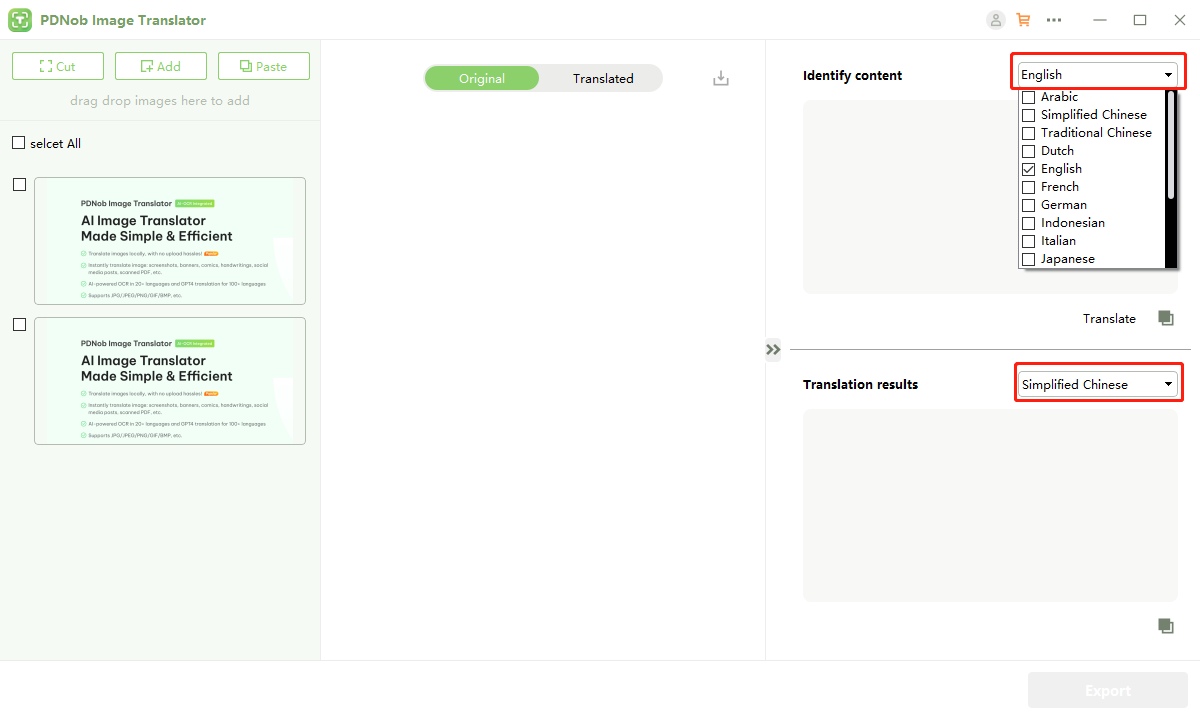
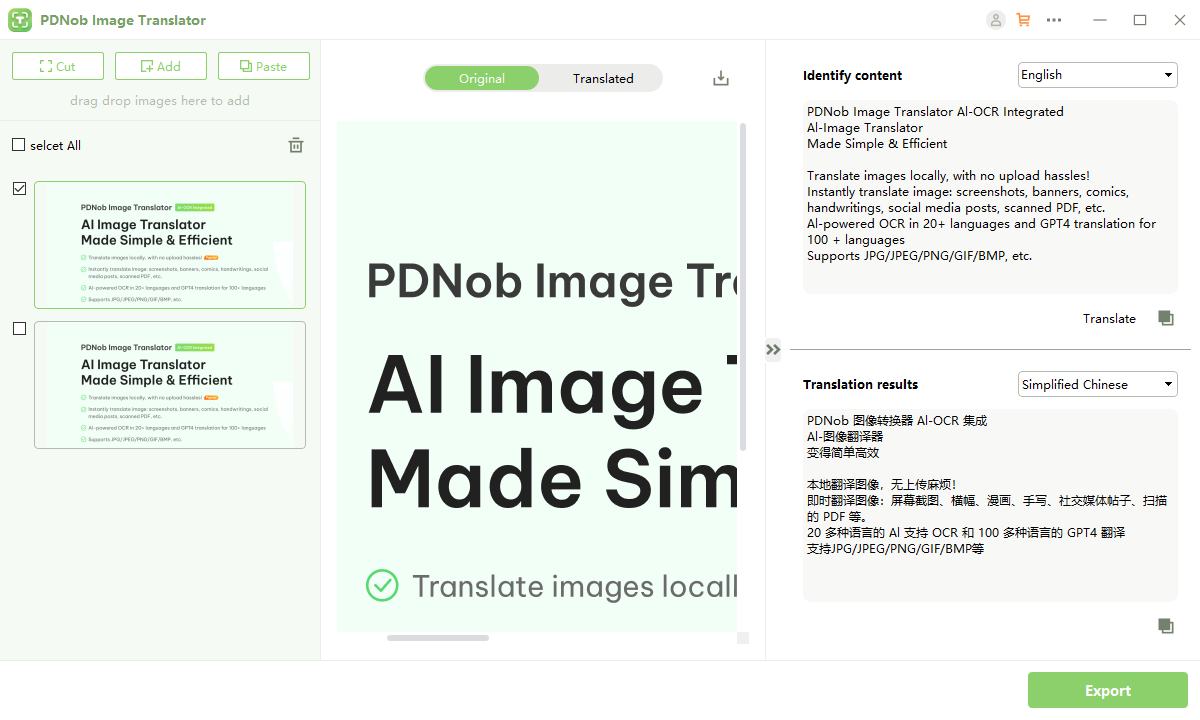
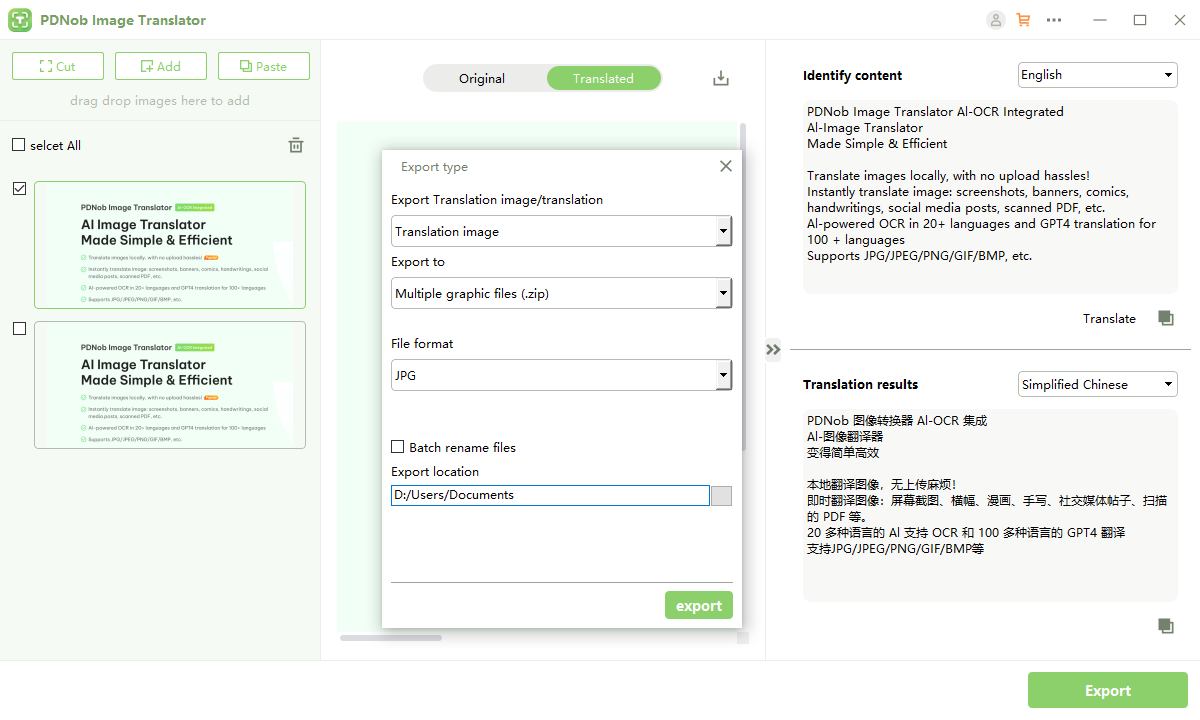
Bottom Line
While imageboard websites are often celebrated for their anonymity and freedom of expression, they also come with their challenges, from toxic content to limited moderation. Understanding the strengths and limitations of each site will help you navigate these communities more effectively and find the ones that resonate with your interests.
Additionally, tools likePDNob Image Translator can enhance your experience, breaking down language barriers and allowing you to explore content from global communities with ease. Whether you're a creative looking for inspiration or simply an anime fan seeking a place to connect, imageboards remain a vital space for online interaction in 2025 and beyond.
Speak Your Mind
then write your review
Speak Your Mind
Leave a Comment
Create your review for Tenorshare articles
Related articles
All topics
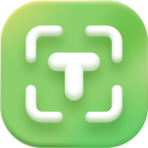 PDNob Image Translator
PDNob Image Translator
Instantly translate various types of images to text.



By Jenefey Aaron
2025-12-12 / Image Translator